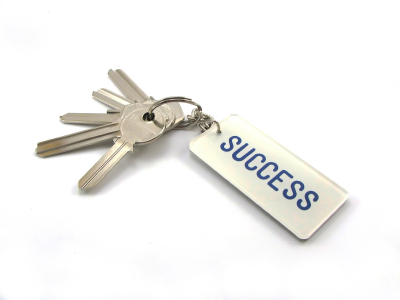Finding the Right Fit is Key to Success
By Shoya Zichy
Corporate culture is the sum of an organization’s goals and values. Fortunate individuals who find themselves in the right culture feel both energized and valued by their boss, peers, and subordinates. Others, in the wrong setting, might be stifled and frustrated by practices and processes that run counter to their natural style. Finding the right culture for your personality is a key component to job success and overall quality of life. Cultural fit is closely related to the structured and adaptable components. Please note that neither type is better or smarter than the other. Each has its success stories and failures. They key is knowing yourself and finding the right fit.
Please choose among the following sample questions:
At Least 51% of the time I tend to
__make detailed plans before you start
__be punctual and sometimes early
__like to be scheduled
__have a tidy workplace
OR __meet deadlines at the last minute
OR __handle problems as they arise
OR _ be leisurely
OR __prefer to be spontaneous
OR __have a workplace with many piles
More items on the left? Your inborn style is structured with more left-brain activity. You thrive in a stable work environment with well-defined job responsibilities. You prefer working with proven products and processes that have been tested in the past. You are seen as responsible, punctual, and accountable and like to be rewarded for getting the job done in an efficient and organized manner. You typically do not like change, too many surprises, or having to work with coworkers who are too flexible or easy going. You have a neat desk, closet, files, and car…Life is tidy and predictable, and you like it that way. Your special strengths include:
- Setting and pursuing long-term goals
- Properly using and conserving resources
- Organizing projects and developing efficient systems
- Meeting and enforcing deadlines
- Completing all parts of work with precision and accuracy
More choices on the right? You are an adaptable with more right-brain activity. Chances are you prefer to work in a flat hierarchy, with the opportunity to redefine your job every day. You excel at creating new products and processes and thrive on dealing with the unexpected. Variety, change, and a flexible environment without undue rules or bureaucracy is best for you. You need to be rewarded for your willingness to take risks and to get things done, often without the assistance of others. You are seen as spontaneous and adaptable. Typically your desk has many piles. Your special strengths are:
- Being flexible, accommodating, and easy to work with
- Responding easily to unexpected changes and crises
- Solving problems in original ways
- Multitasking and keeping several balls in the air at the same time
- Applying skills and interests to new fields
The Conflict
Conflicts exist between the two groups—both in the workplace and in families. Structured types drive their opposites crazy with their need for schedules, plans, and closure. Meanwhile, adaptables may be perceived as messy and irresponsible by their structured counterparts. Understanding these inborn differences and the contributions of each increases workplace satisfaction and productivity.
Do Companies Have Only One Culture?
Despite an overall culture, environments have different work niches for the other personality type. For instance, a large bank, normally a bastion of structured behavior has a few departments designed to explore new markets and products. These groups may be heavily populated by adaptables who create a unique culture within their units. Likewise, companies like Google need operating units with more structured components. Accounting, project management, and operations are just a few that typically draw and are run by individuals with the laser-beam focus needed to carry out the responsibilities of the group. Recognizing that you are a good fit within your unit, but at odds with the company’s culture at large, reduces stress. It is easier to point out your value to the company if you understand the larger framework in which you operate.
Clues to Recognizing the Organizational Culture
Sometimes you can determine the corporate culture during the interviewing process. The degree of noise, conditions of desks, and dress code provide clues. The structured environments tend to be more subdued. Employees have desks with limited and neatly organized piles. The clothing usually is more formal. Deadlines and punctuality are high priorities. In an adaptable environment, there is restrained chaos. Deadlines, clothing, and schedules are more casual, and desks have many piles.
The world divides fairly equally between the two groups. and there are no gender differences. Styles are inborn and hold up from cradle to grave.
Finding the right corporate culture will allow you to define your unique strengths and brand yourself so others appreciate your contributions. This is one of the most important steps to career success. It will also reduce stress, free up your creativity, and improve all your relationships.

 Shoya Zichy is the creator of the award-winning Color Q profile system, and author of PERSONALITY POWER: Discover Your Unique Profile-and Unlock Your Potential for Breakthrough Success.
Shoya Zichy is the creator of the award-winning Color Q profile system, and author of PERSONALITY POWER: Discover Your Unique Profile-and Unlock Your Potential for Breakthrough Success.


Submit a Comment